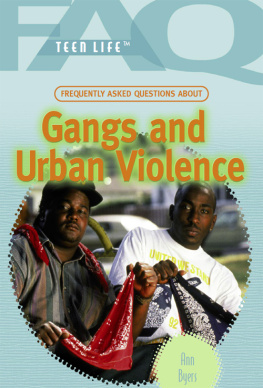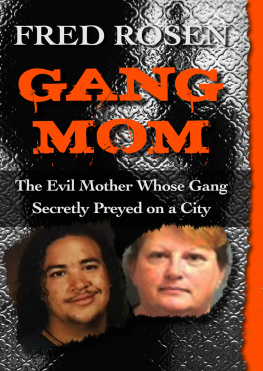Robert Garot - Who You Claim: Performing Gang Identity in School and on the Streets
Here you can read online Robert Garot - Who You Claim: Performing Gang Identity in School and on the Streets full text of the book (entire story) in english for free. Download pdf and epub, get meaning, cover and reviews about this ebook. year: 2010, publisher: NYU Press, genre: Art. Description of the work, (preface) as well as reviews are available. Best literature library LitArk.com created for fans of good reading and offers a wide selection of genres:
Romance novel
Science fiction
Adventure
Detective
Science
History
Home and family
Prose
Art
Politics
Computer
Non-fiction
Religion
Business
Children
Humor
Choose a favorite category and find really read worthwhile books. Enjoy immersion in the world of imagination, feel the emotions of the characters or learn something new for yourself, make an fascinating discovery.

- Book:Who You Claim: Performing Gang Identity in School and on the Streets
- Author:
- Publisher:NYU Press
- Genre:
- Year:2010
- Rating:4 / 5
- Favourites:Add to favourites
- Your mark:
Who You Claim: Performing Gang Identity in School and on the Streets: summary, description and annotation
We offer to read an annotation, description, summary or preface (depends on what the author of the book "Who You Claim: Performing Gang Identity in School and on the Streets" wrote himself). If you haven't found the necessary information about the book — write in the comments, we will try to find it.
2011 Honorable Mention for the American Sociological Association Community and Urban Sections Robert E. Park Book Award
The color of clothing, the width of shoe laces, a pierced ear, certain brands of sneakers, the braiding of hair and many other features have long been seen as indicators of gang involvement. But its not just what is worn, its how: a hat tilted to the left or right, creases in pants, an ironed shirt not tucked in, baggy pants. For those who live in inner cities with a heavy gang presence, such highly stylized rules are not simply about fashion, but markers of who you claim, that is, who one affiliates with, and how one wishes to be seen.
In this carefully researched ethnographic account, Robert Garot provides rich descriptions and compelling stories to demonstrate that gang identity is a carefully coordinated performance with many nuanced rules of style and presentation, and that gangs, like any other group or institution, must be constantly performed into being. Garot spent four years in and around one inner city alternative school in Southern California, conducting interviews and hanging out with students, teachers, and administrators. He shows that these young people are not simply scary thugs who always have been and always will be violent criminals, but that they constantly modulate ways of talking, walking, dressing, writing graffiti, wearing make-up, and hiding or revealing tattoos as ways to play with markers of identity. They obscure, reveal, and provide contradictory signals on a continuum, moving into, through, and out of gang affiliations as they mature, drop out, or graduate. Who You Claim provides a rare look into young peoples understandings of the meanings and contexts in which the magic of such identity work is made manifest.
Robert Garot: author's other books
Who wrote Who You Claim: Performing Gang Identity in School and on the Streets? Find out the surname, the name of the author of the book and a list of all author's works by series.







